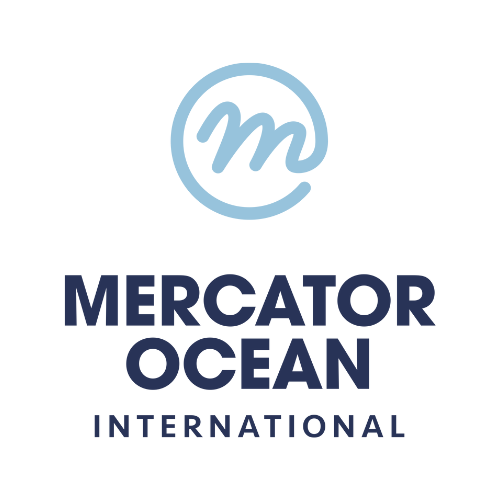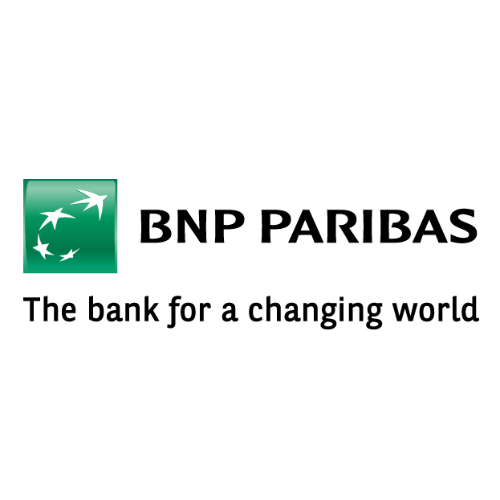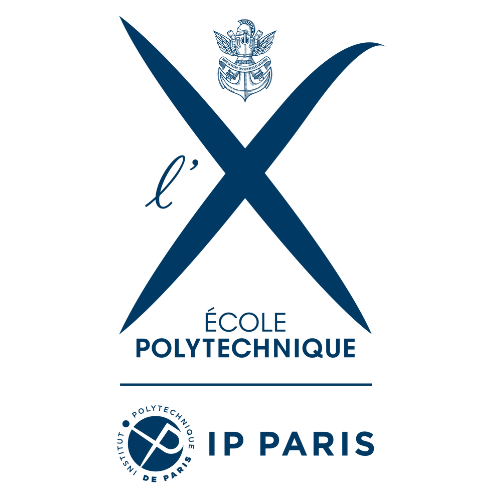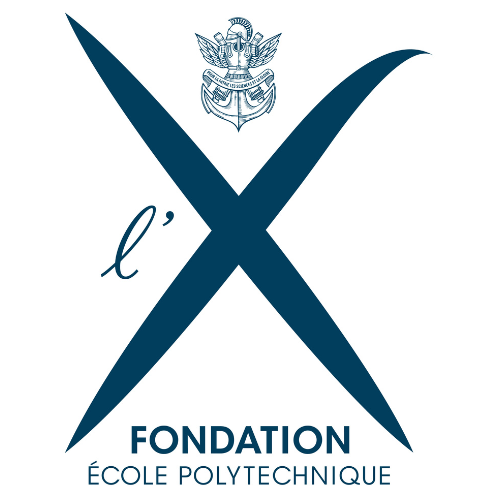- Home
- Education
- Academic and Research Departments
- Applied Mathematics Department (DepMAP)
- Student Event
- GenHack 2 - Hackathon For Generative Modelling
GenHack 2 - Hackathon for Generative modelling

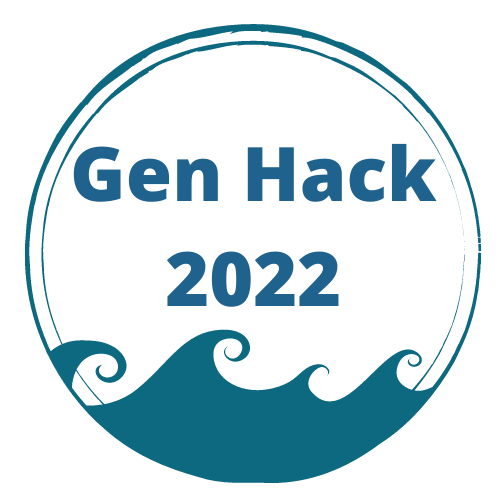
“Recent changes in the climate are widespread, rapid, and intensifying, and unprecedented in thousands of years”
Sixth Assessment Report, Working group I – The physical Science Basis @Karina Von Schuckman
Context
According to the recent IPCC 6th assessment cycle, recent changes in the climate are widespread, rapid, and intensifying, and unprecedented in thousands of years. It is indisputable that human activities are causing climate change, which is already affecting every region on Earth, in multiple ways, and making extreme climate events, including heat waves, heavy rainfall, and droughts, more frequent and severe. Today, total human-caused global surface temperature increase from 1850–1900 to 2010–2019 is 0.8°C to 1.3°C, with a best estimate of 1.07°C. Global surface temperature will continue to increase until at least mid-century under all emissions scenarios considered, leading to a climb of heat waves, global mean sea levels and natural disasters.
The Ocean covers more than 70% of the surface of our planet and holds a vital role in climate, environmental and social balances by providing numerous ecosystems supporting services. The emergence of new oceanic conditions for marine organisms (from plankton to mammals), in particular the decrease in nutrients in marine ecosystems, leads to changes in their physiology, the migration of species, the earlier occurence of biological events or species extinction, whether animal or plant.
Dispersed ocean sensors, called stations, help to collect sea temperatures data. However measuring the temperatures on a fine mesh is too expensive for obvious cost reasons. Thus, developing a model able to provide a fine-scale temperature map and able to enrich the possible scenarios is of major importance in order to better assess the climate risks.
The Objectives
GenHack2 is a data challenge of generative models to study the evolution of ocean temperature across the years in the context of the climate change, based on real data provided by Mercator Ocean. This consists in augmenting and enriching the dataset by new data.
The final objective is to simulate potential future temperatures values with spatial dependency betweeen stations.
Create your team among hundreds of students among the top universities around the world!
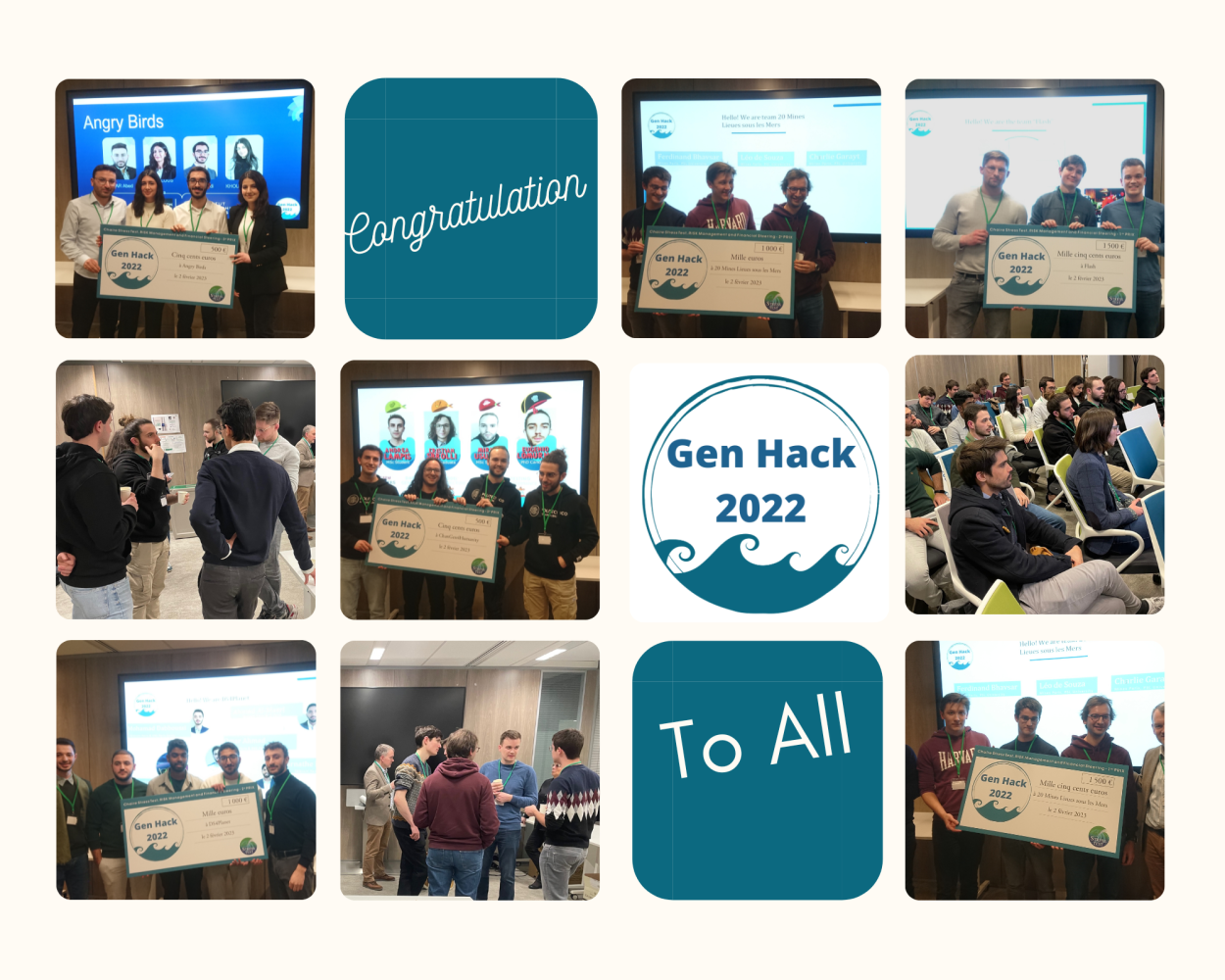
The second edition of the genhack data challenge is now finished.
Thank you to all for your participation!
More information on this edition in this article : Closing and award ceremony of the genhack data challenge
Timeline
Registration and team building : October 7th to November 15th, 2022
Tutorials sessions : November 10th to 16th, 2022
Kick-off : November 17th, 2022
Competition : November 17th to December 17th, 2022
November 26th, 2022 : Evaluation #1
December 3rd, 2022 : Evaluation #2
December 17th, 2022 : Evaluation #3
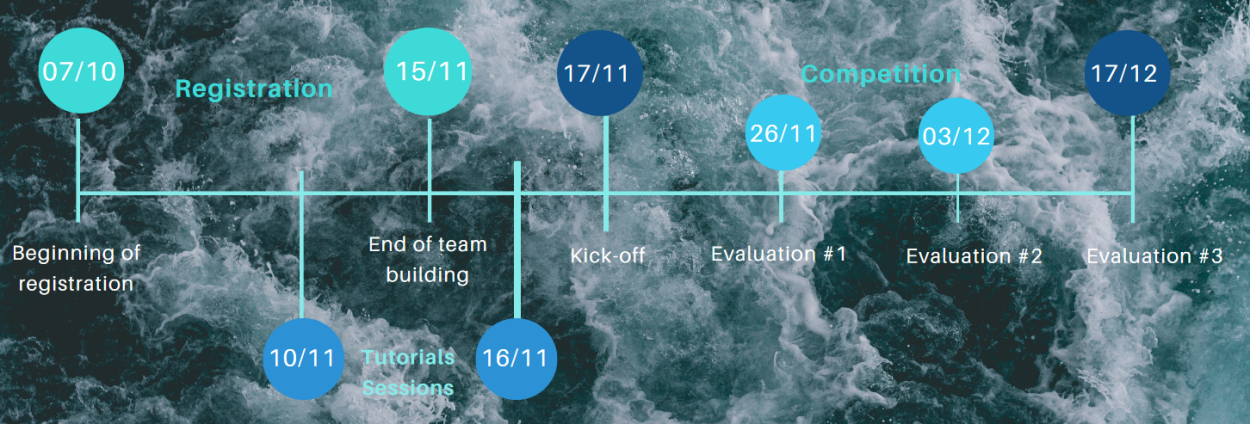
Registration
Deadline : November 15th, 2022
-> Registration are now closed!
Competition
Data challenge are like marathons: Some people go to compete but most people take part to better themselves and have fun. Whatever the reason is you are at a data challenge, make sure you are upholding the spirit of data challenge by collaborating with other teams, and having fun.
The Rules
- As a participant, you must treat all team members, competitors, judges, professors, with respect and courtesy.
- Hackathon teams will be a maximum of 5 people and a minimum of 3 people.
- Teams have to be made exclusively of students (from undergraduate to doctoral studies).
- All your code must be in Python .
- A monetary prize for a winning team will be shared equally between all team members.
- Teams can of course gain advice and support from organizers, sponsors, coaches and others.
- All members of winning teams will have to provide proof of their student status. If not the whole team will be disqualified.
- Winning teams will have to assist to the closing event either in person or via a visio-conference system.
- Teams can be disqualified from the competition at the organisers’ discretion. Reasons might include but are not limited to breaking the Competition Rules.
- The agenda and the evaluation method are susceptible to change, in a fair and appropriate way, in case of unforeseen events.
Any questions ? Please send us an email to:
Sponsors of the data challenge
GenHack challenge is managed by the Chair Stress test, Risk management and Financial steering (Ecole polytechnique, BNP Paribas and Fondation de l'Ecole polytechnique), Mercator Ocean International.
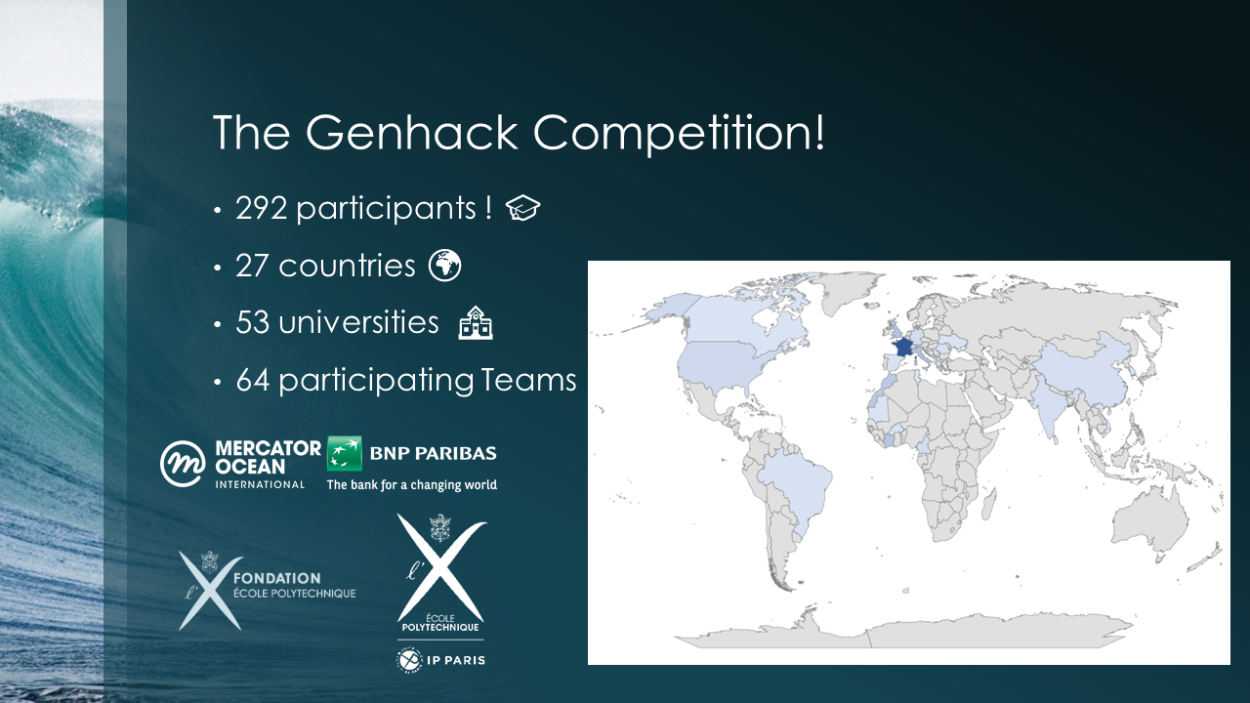
 Support l'X
Support l'X 
